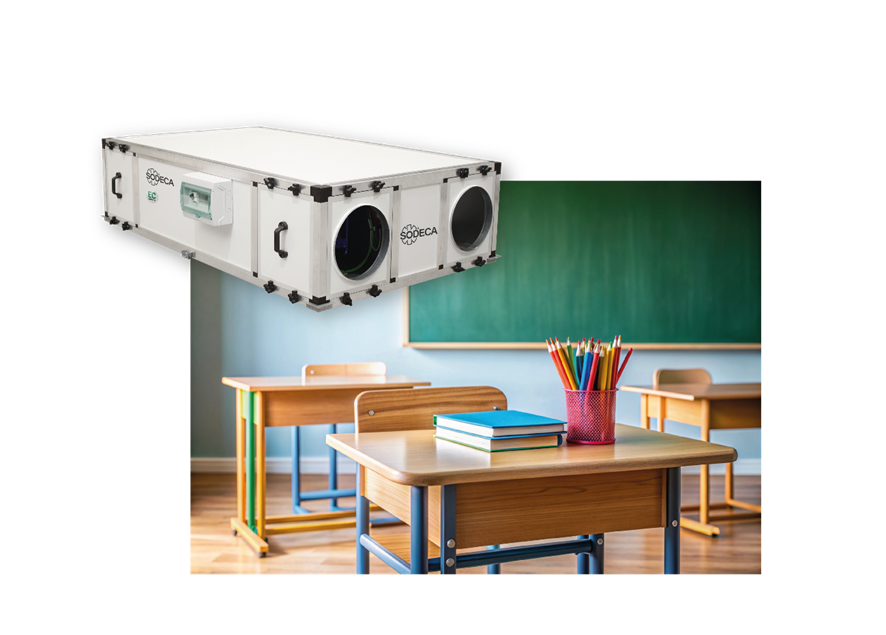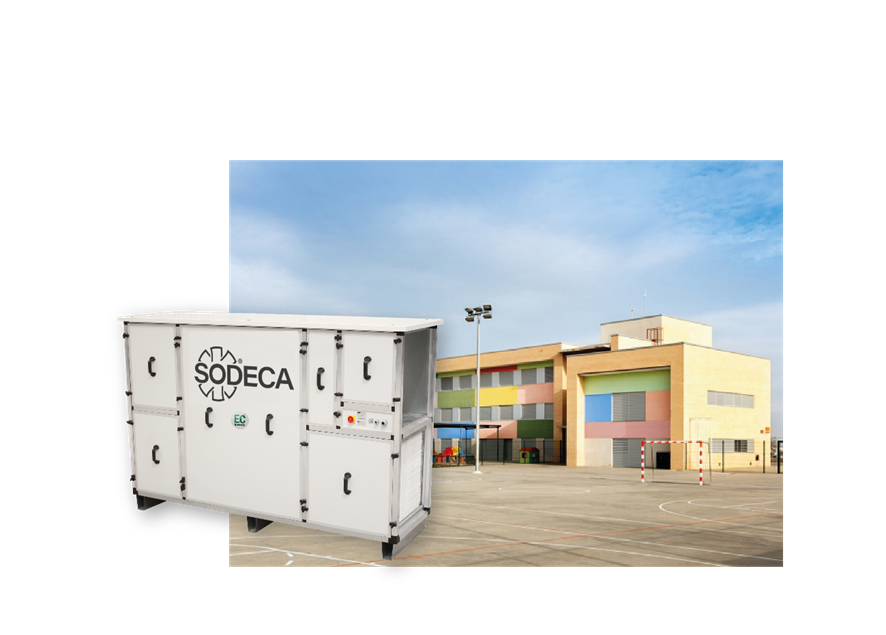Carlos Martínez, environmental engineer at SODECA, explains the importance of investing in air conditioning for schools and how to implement it sustainably using heat recovery ventilation systems
Barcelona City Council is currently engaged in a process of air-conditioning its schools, which began this year and will continue until 2029. This roadmap includes the adaptation of a total of 170 schools. As the council outlines in its plan, they aim to enhance “comfort and sustainability in the face of increasingly frequent heat waves”. However, the purpose of the investment extends beyond that; it seeks to ensure thermal comfort throughout the school year and maintain good indoor air quality in the classrooms. According to Carlos Martínez, environmental engineer and head of Training and Knowledge Transfer at SODECA, the solution lies in ventilation systems with heat recovery.

These systems facilitate the achievement of the objectives that public institutions set when investing in air conditioning. “In schools, where the concentration of people is high, a heat recovery ventilation system enables us to maintain a healthy environment while simultaneously reducing the demand for air conditioning”, explains Carlos Martínez. In other words, heat recovery units not only help maintain the correct temperature in classrooms but also filter and renew the air, enhancing the well-being of the students. This aligns perfectly with the goals set by Barcelona City Council in the school air conditioning plan.
The SODECA engineer illustrates this with a practical example: “Let's assume that the outside temperature of a building is 33 °C, while the inside temperature is 23 °C. With a heat recovery unit, the outside air (filtered and treated) enters the building at a temperature of 26 °C. This not only improves indoor air quality but also ensures a healthier environment for occupants. Moreover, it leads to significant energy and cost savings.” SODECA's RECUP/EC-BS and RECUP/EC-H models are heat recovery units that can be effectively utilized in buildings with high air flow, such as schools.

With its air-conditioning plan for educational centres, Barcelona has become a pioneer in this field, although other regions, such as the Balearic Islands, are also exploring similar investments. In all cases, sustainability remains a top priority for public instituions. In this regard, Carlos Martínez explains that the heat recovery solutions offered by SODECA consist of ventilation systems “designed specifically to be energy efficient, thereby reducing the carbon footprint of schools”. The rationale is straightforward: "By recovering heat from the expelled air and transferring it to the incoming air, the need for traditional air conditioning systems is significantly diminished”.
Certainly, this energy saving also makes the investment in air conditioning more cost-effective in the long run. “The energy savings achieved are substantial, and the improvement in air quality has direct benefits for health and academic performance. “It is an investment that pays for itself quickly”, explains SODECA engineer Carlos Martínez.
